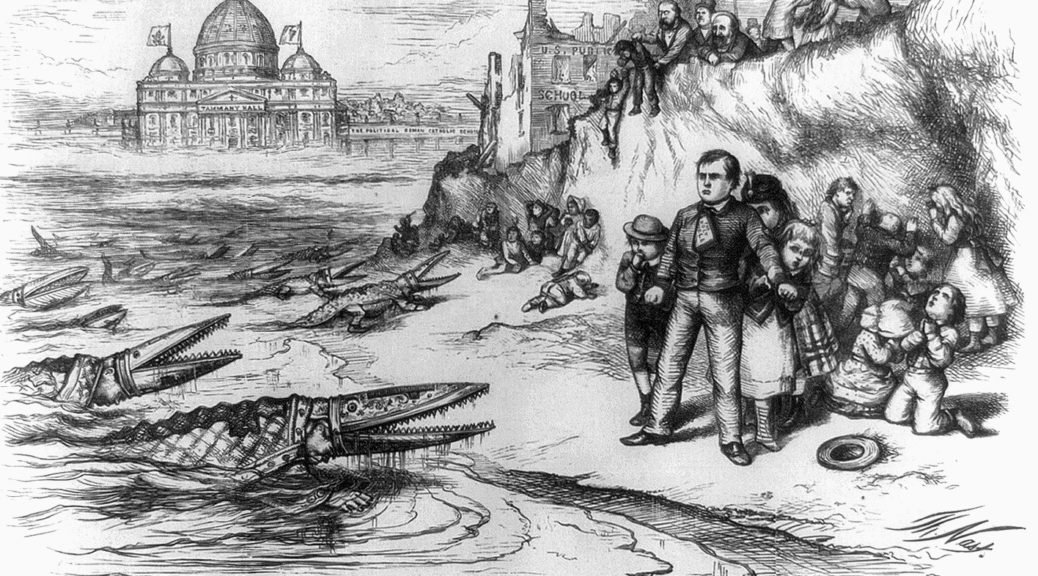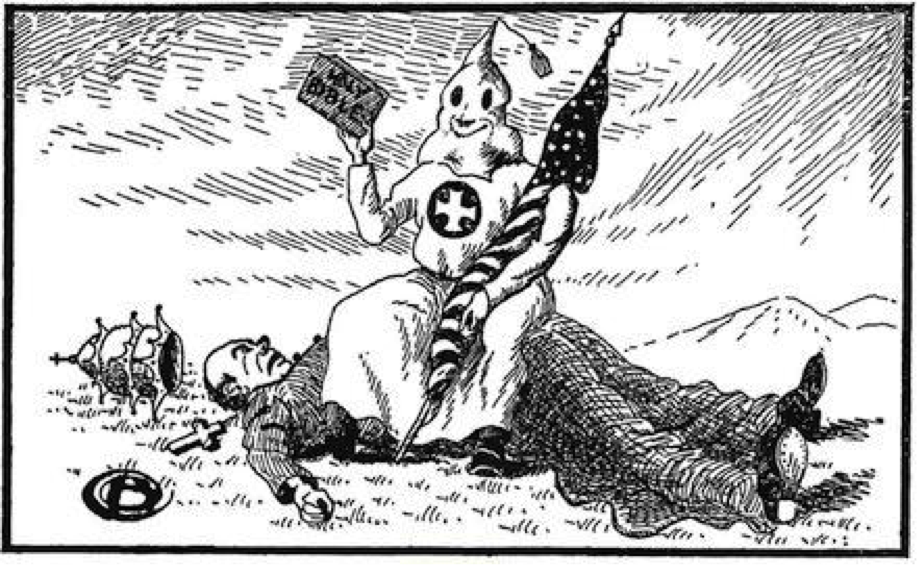The River Ganges
Look closely: those crocodiles coming ashore to eat the children are actually Catholic Bishops! The boy standing bravely on the beach has a Holy Bible sticking out of his coat. A gutted building behind them is labelled Public Schools. What’s this all about? In the 1870s, when this Thomas Nast cartoon was published, Protestants were aggressively casting Catholics as anti-Bible. The reason: the Catholics resisted having their kids forced to read the King James version of the Bible (instead of…

